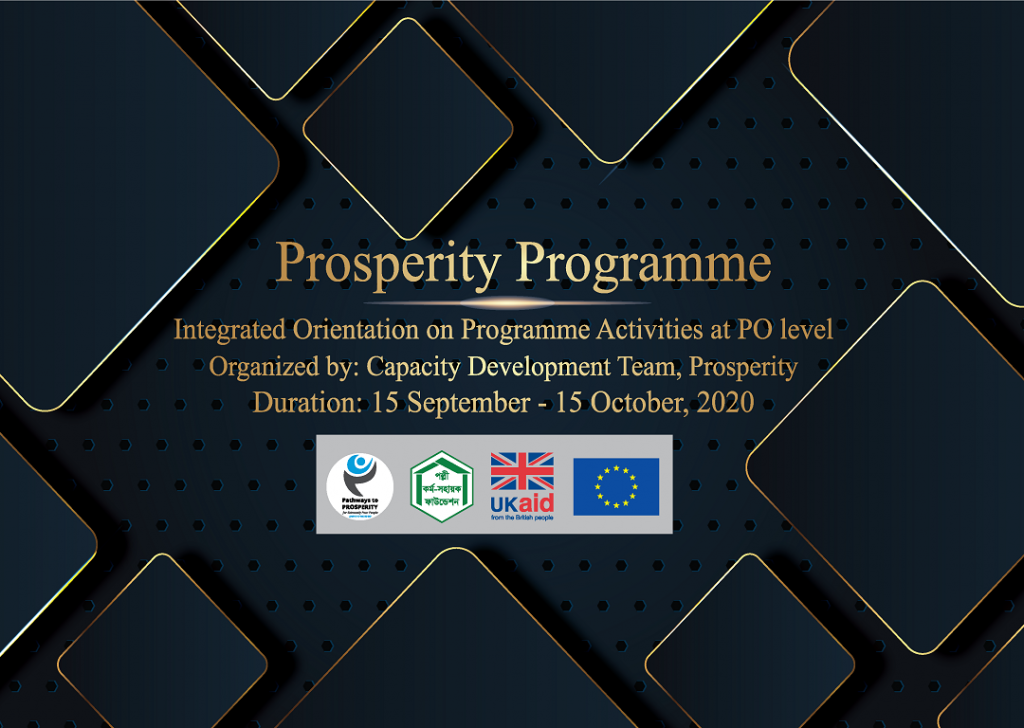The orientation aims to enhance skills for effective programme implementation
PKSF’s Project Implementation Unit (PIU) of Prosperity has begun an orientation programme for the technical staff of the Partner Organisations (POs), who are implementing the programme on the ground.
The month-long virtual orientation began on 15 September 2020 as the project staff are now unable to travel due to the COVID-19 pandemic. The remote orientation experience ensures that all staff remain socially distanced.
The five-batch orientation programme titled ‘Integrated Orientation on Programme Activities at PO level’ will end on 15 October 2020.
The orientation aims to enhance the skills of the PO staff for an effective implementation of the programme, jointly funded by the UK’s Foreign, Commonwealth & Development Office (FCDO; formerly DFID) and the European Union (EU).
A total of 443 participants from 19 downstream Partner Organizations (POs) are taking part in the orientation. The participants include the Project Coordinators, Technical Officers and Assistant Technical Officers under the Livelihoods, Nutrition and Community Mobilisation components as well as Management Information System (MIS) officers.
Divided into different sessions, the orientation is being organised by the Capacity Development Team of Prosperity programme and conducted by a pool of resource persons from the PIU at PKSF.
The orientation is being conducted so the programme officials can, among other things:
- Gain an in-depth understanding of programme related issues (e.g. programme brief, operational framework, Theory of Change of Prosperity programme, results chain, field implementation and monitoring strategies, etc.);
- Implement the programme activities effectively (including issues like modern farming techniques, better fisheries and livestock management, off-farm production, capacity building of the participants, basic discussion on food and nutrition, conceptual frameworks of nutrition component, nutrition-specific activities, nutrition-sensitive activities, implementation strategies, rooted advocacy, Social and Behavior Change Communication-SBCC, gender integration, disability inclusion, climate change resilience, disaster risk mitigation and the use of GIS in poverty reduction);
- Have a clear idea of MIS, accounting system, financial management, procurement, etc;
After a year-long Inception Phase, the programme has started service delivery at the extreme poor households since July 2020.
The Prosperity programme supports extremely poor people to connect them with mainstream economic growth and create income-generating opportunities for their sustainable development.
It aims to lift one million people from some 2,50,000 households out of extreme poverty by March 2025.
